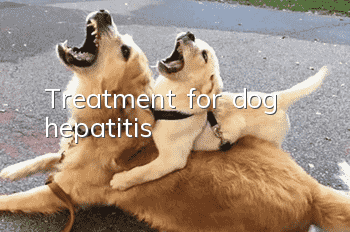Three secrets of longevity for a 240-year-old dog

Don't rush to scold me for being a headliner. Think about it, a 1-year-old dog is equivalent to a 16-year-old teenager. The dog that lived to be 30 years old and won the Guinness Book of Records must be 240 years old. If nothing else, even if it only lived to be 16 or 7 years old, it is something worthy of admiration.
After all, many dog age charts generally only show age 12-14 years old. For dogs like Maggie who live to be 30 years old, there is no corresponding point on the chart.
But generally speaking, hybrid dogs live longer than purebred dogs, male dogs live longer than female dogs, and small dogs live longer than large dogs, except for the third point, Maggie.
Maggie was born in Victoria, Australia. Although she is the record holder for the oldest dog in the world, she is not the only one in Victoria, Australia, where she was born. Another Australian Cattle Dog named Bluey was born in 1910. Not only was he born on a farm like Maggie, he was also the previous record holder. Maggie refreshed his record.
One can’t help but wonder whether the comfortable and happy life on the farm is the secret to their longevity? If we want our dogs to stay with us longer, do we also want to go there?
Of course not! As long as you spend a few minutes and read these three points carefully, your dog may be the next record innovator!!
Regular inspection
Due to the increase in age, the functions of all parts of the body of dogs after 6-7 years old, especially large dogs, have gradually deteriorated. They need to be more diligent in physical examinations, at least twice a year, and preferably Maintain good communication with your doctor.
Diet Improvement
Pay attention to maintaining a balanced diet and try to choose low-fat foods. Older dogs are more likely to be obese, which is a major problem affecting their health. It is best to eat small meals frequently every day, because dogs become less active as they get older, and eating too much means poor digestion for them.
Promise me, never succumb to the attack of its pitiful eyes! If you really can’t stand it, then try your best to choose healthy vegetables/fruits such as apples, pumpkins, and carrots for them!
Appropriate exercise
Exercise is important for older dogs to control their weight and promote healthy muscles and bones.
But considering that arthritis, heart disease, and lung problems are more common in older dogs, just keep exercising regularly and don't let them get too tired. rather than occasionalA long trip is better than a moderate walk of about 5 minutes a day.
Stay active
An active mental state is very important for a dog. You can play some relaxing games with it, such as hide-and-seek, handshake training, etc. If your dog is still healthy, you can also take it for walks on the lawn or in the park. The new environment and smell can give it a little stimulation~
Regular deworming
Older dogs have weaker immune systems and are less able to fight off these parasites and bacteria. Some small parasites that usually only cause skin diseases can cause great health risks to elderly dogs, so regular deworming is very important.
Convenient access
Elderly dogs usually have difficulty moving. In addition to placing food and water basins nearby, it is best to lay a carpet on the slippery floor to prevent them from slipping.
Maintain temperature
Like older people, older dogs cannot regulate their body temperature as freely as we do. In overcold or overheated weather, they may have difficulty breathing or shake constantly. At this time, you need to seek outside help, such as wearing a sweater to keep warm or using cold water to cool down.
Increased bowel movements
Older dogs cannot control their desire to defecate, so we need to increase the number of defecation times by 1-2 times. For example, if you walk every 6 hours a day, now you can try walking every 4 hours.
· Check your eyes, nose, and ears for discoloration, discharge, or other signs;
· Check the head, abdomen, and limbs for lumps or other growths, and feel the abdomen and ribs to monitor weight. Listen to its breathing and note any wheezing, coughing, or difficulty breathing;
· If it drinks excessively or stops eating/drinking, check the frequency of urination and bowel movements, including their color and other changes;
· Watch for signs of mental decline, such as excessive barking and sudden aggression, including incontinence;
· If you find that it is difficult to find food/toys, or often bumps into things, and it does not respond when you shout, or deliberately making noises to attract its attention is useless, it may be a vision or hearing problem;
In addition to the above, once you find something wrong, don’t take it too much trouble. Please understand and contact the doctor. After all, the person who knows them best is you..
If your baby is very old, I hope you won’t have to undergo some painful surgeries in order to extend their lifespan, such as amputation to treat bone cancer. This will only make their short remaining life more difficult...< /p>
- How to tell if your dog has bladder stones? A must-read for novices!
- What causes dogs to have double rows of teeth?
- How to train a Teddy dog that is not obedient? Here are some tips for you!
- What to do if your dog has a bloated stomach?
- Symptoms and treatment of balanitis in dogs
- What causes dry hair in dogs
- How to train a golden retriever
- Can newborn puppies drink soy milk?
- What should you do if your dog likes to bite?
- What should I do if my dog has diarrhea?



